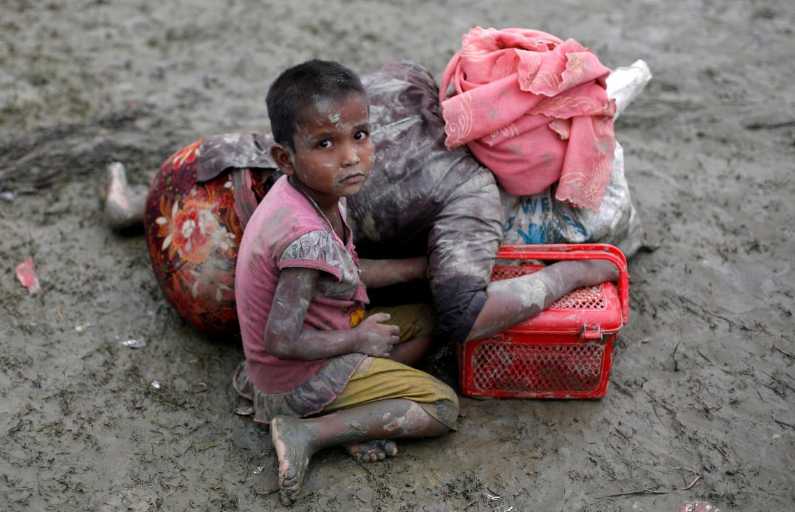U.N. warns of catastrophe as Myanmar Rohingya exodus nears 150,000


Nearly 150,000 Rohingya Muslims have fled Myanmar for Bangladesh in less than two weeks, officials said on Wednesday after the United Nations chief warned there is a risk of ethnic cleansing in the former Burma that could destabilize the wider region.
Myanmar leader Aung San Suu Kyi blamed “terrorists” for “a huge iceberg of misinformation” on the violence in Rakhine state but she made no mention of the exodus of Rohingya since violence broke out there on Aug. 25.
She has come under increasing pressure from countries with Muslim populations, including Indonesia, where thousands led by Islamist groups held a rally in Jakarta on Wednesday, to demand that diplomatic ties with Buddhist-majority Myanmar be cut.
In a rare letter to the U.N. Security Council on Tuesday, Secretary-General Antonio Guterres expressed concern that the violence in Rakhine could spiral into a “humanitarian catastrophe”.
Reuters reporters in the impoverished Cox’s Bazar region of neighboring Bangladesh have witnessed boatloads of exhausted Rohingya arriving near the border village of Shamlapur.
According to the latest estimates issued by U.N. workers operating in Cox’s Bazar, arrivals in just 12 days stood at 146,000. This brought to 233,000 the total number of Rohingya who have sought refuge in Bangladesh since last October.
Newly arrived Rohingyas told authorities that three boats carrying between them more than 100 people capsized in the early hours of Wednesday. Coast guard Commander M.S. Kabir said six bodies, including three children, had since washed ashore.
“FAKE INFORMATION”
The surge of refugees – many sick or wounded – has strained the resources of aid agencies and communities already helping hundreds of thousands from previous spasms of violence in Myanmar. Many have no shelter, and aid agencies are racing to provide clean water, sanitation and food.
Reuters